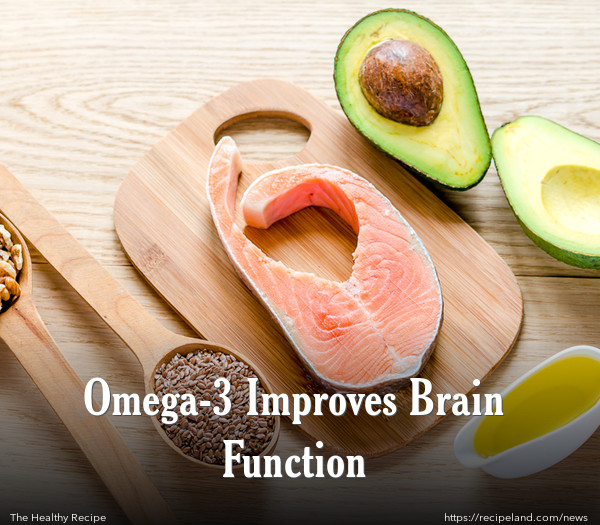A recent study illuminated the connection between omega-3 fatty acids and the reduction of inflammation in the brains of patients suffering from Alzheimer’s disease, perhaps helping to slow the progression.
The study, published in the Journal of Internal Medicine showed how the omega-3 fatty acids actually cross the blood-brain barrier, proving positive benefits for those taking this popular nutritional supplement.
At the Karolinska Institutet in Sweden, researchers studied 33 patients with mild Alzheimer’s disease, giving 18 of the patients daily nutritional supplements of omega-3 fatty acids, and giving the remainder of the subjects a placebo.
The group that received the fatty acids showed higher levels of DHA and EPA in their cerebrospinal fluid (brain fluid), while those in the placebo group showed no change in levels. Typically, those with certain diseases, including Alzheimer’s disease, show lower levels of DHA.
Previous studies have indicated that omega-3 may help to protect against Alzheimer’s disease, which, according to one of the lead researchers, Yvonne Freund-Levi, M.D., “which makes it interesting to study the effects of dietary supplements containing this group of fatty acids in patients who have already developed the disease.”
From gestation on, throughout life, it is known that omega-3 and several additional polyunsaturated fatty acids build up in the brain and the central nervous system (CNS).
Although it is thought that when omega-3 fatty acids are part of the diet they are continuously replenished in the CNS, it has been unclear whether or not the fatty acids actually pass through the blood-brain barrier, until now.
The blood-brain barrier exists to protect the brain from exposure to harmful chemicals and toxins that are naturally present in the blood, and can prevent transmission of certain drugs into the brain and cerebrospinal fluid.
Though researchers have sought to identify medications and drugs to treat the debilitating effects of Alzheimer’s, including inflammation, typical anti-inflammatory drugs have not shown consistent positive results or helped to improve memory and cognition.
Other studies that have been conducted on animals have indicated that providing omega-3 supplements can increase DHA levels in the brain, but similar results have not been shown in human subjects.
This recent study now indicates that, “the same applies to humans, which suggests that omega-3 fatty acids in dietary supplements cross the blood-brain barrier. However, much work remains to be done before we know how these fatty acids can be used in the treatment of Alzheimer's disease to halt memory loss,” according to Professor Professor Jan Palmblad, who developed the current study.
SOURCES: Journal Reference:Yvonne Freund Levi, Inger Vedin, Tommy Cederholm, Hans Basun, Gerd Faxén Irving, Maria Eriksdotter, Erik Hjorth, Marianne Schultzberg, Bengt Vessby, Lars-Olof Wahlund, Norman Salem, Jan Palmblad. Transfer of omega-3 fatty acids across the blood-brain barrier after dietary supplementation with a docosahexaenoic acid (DHA)-rich omega-3 fatty acid preparation in patients with Alzheimer's disease: the OmegAD study. Journal of Internal Medicine, 2013; DOI: 10.1111/joim.12166; https://www.sciencedaily.com/releases/2013/12/131204090950.htm; Image courtesy of Praisaeng / FreeDigitalPhotos.net










Comments